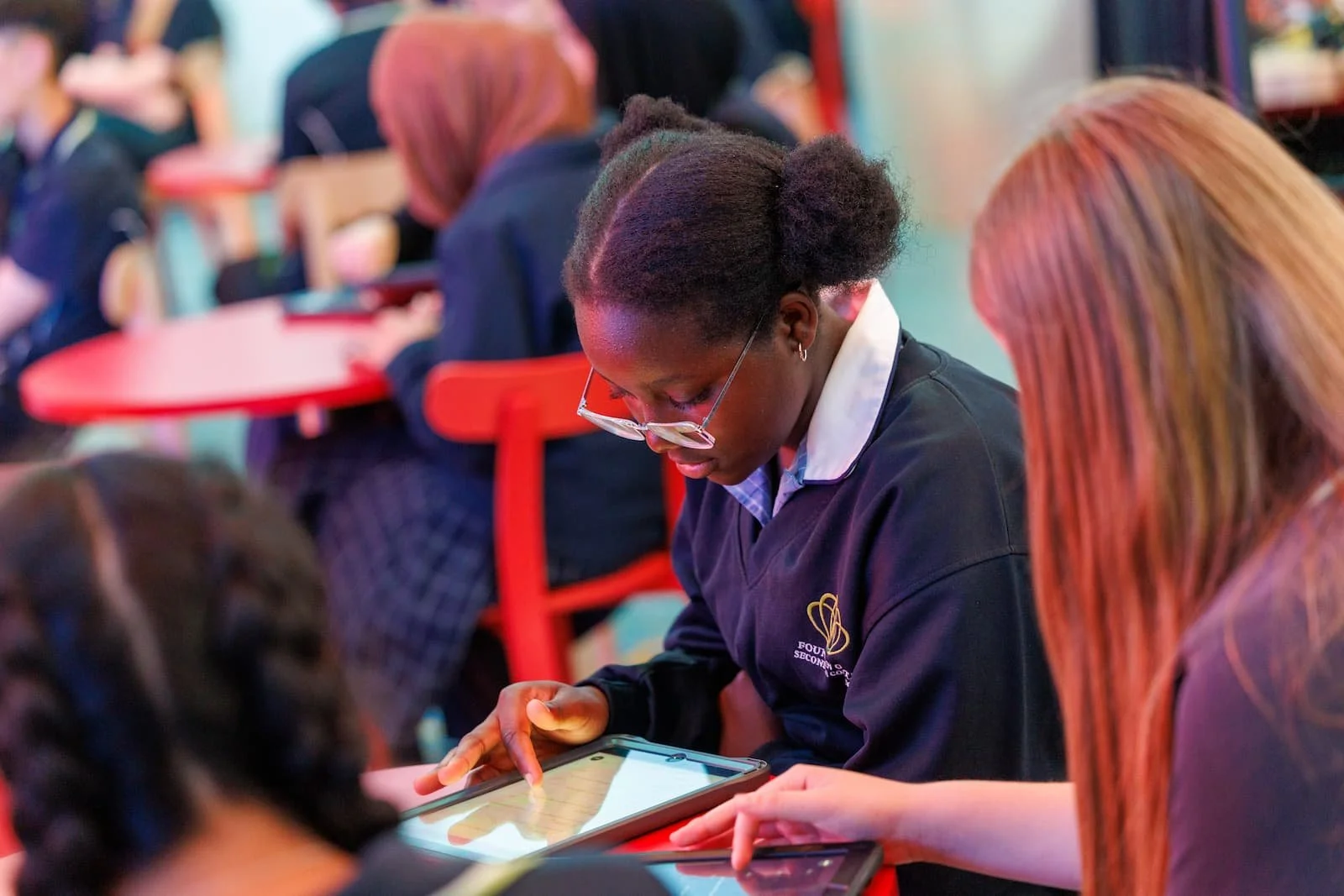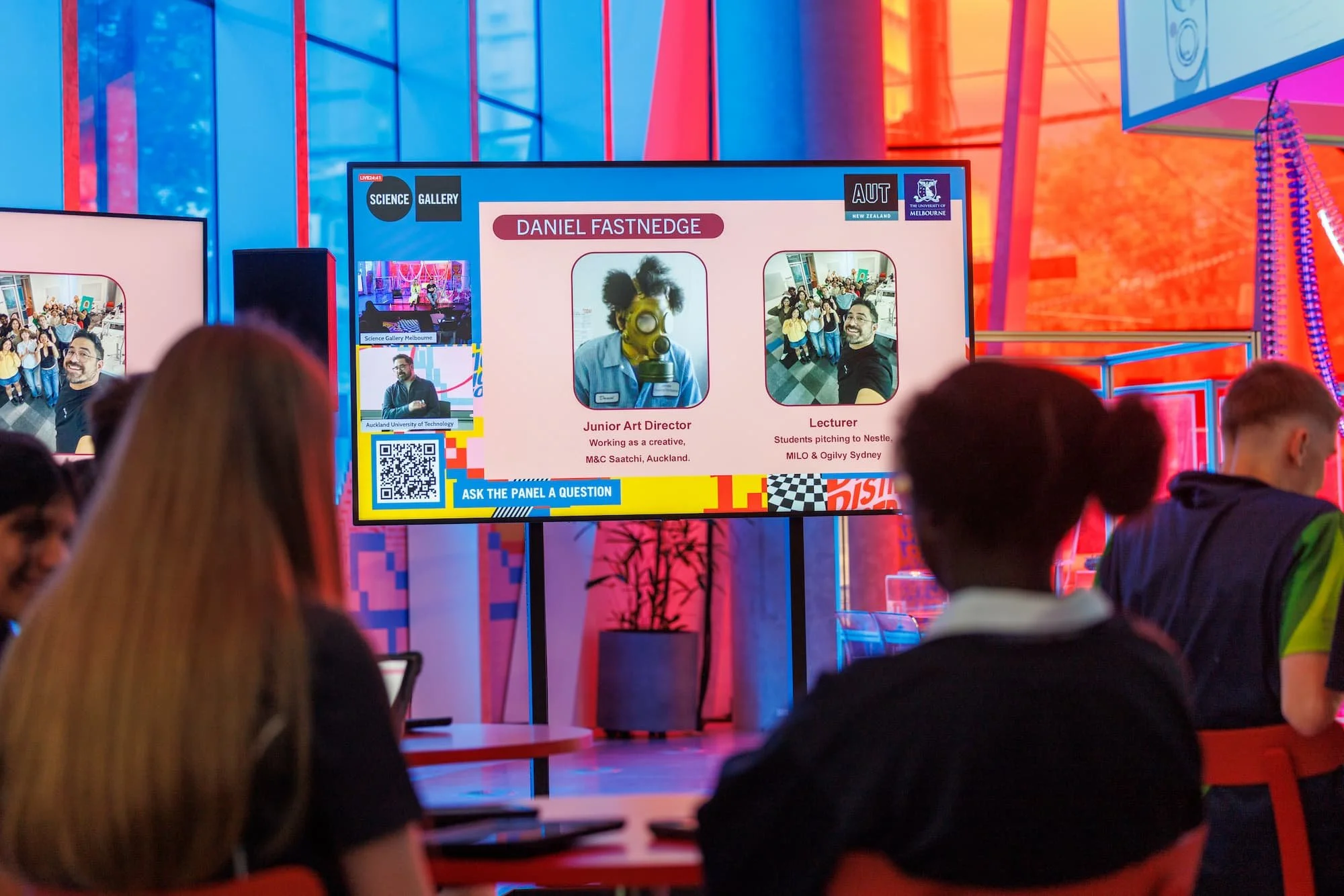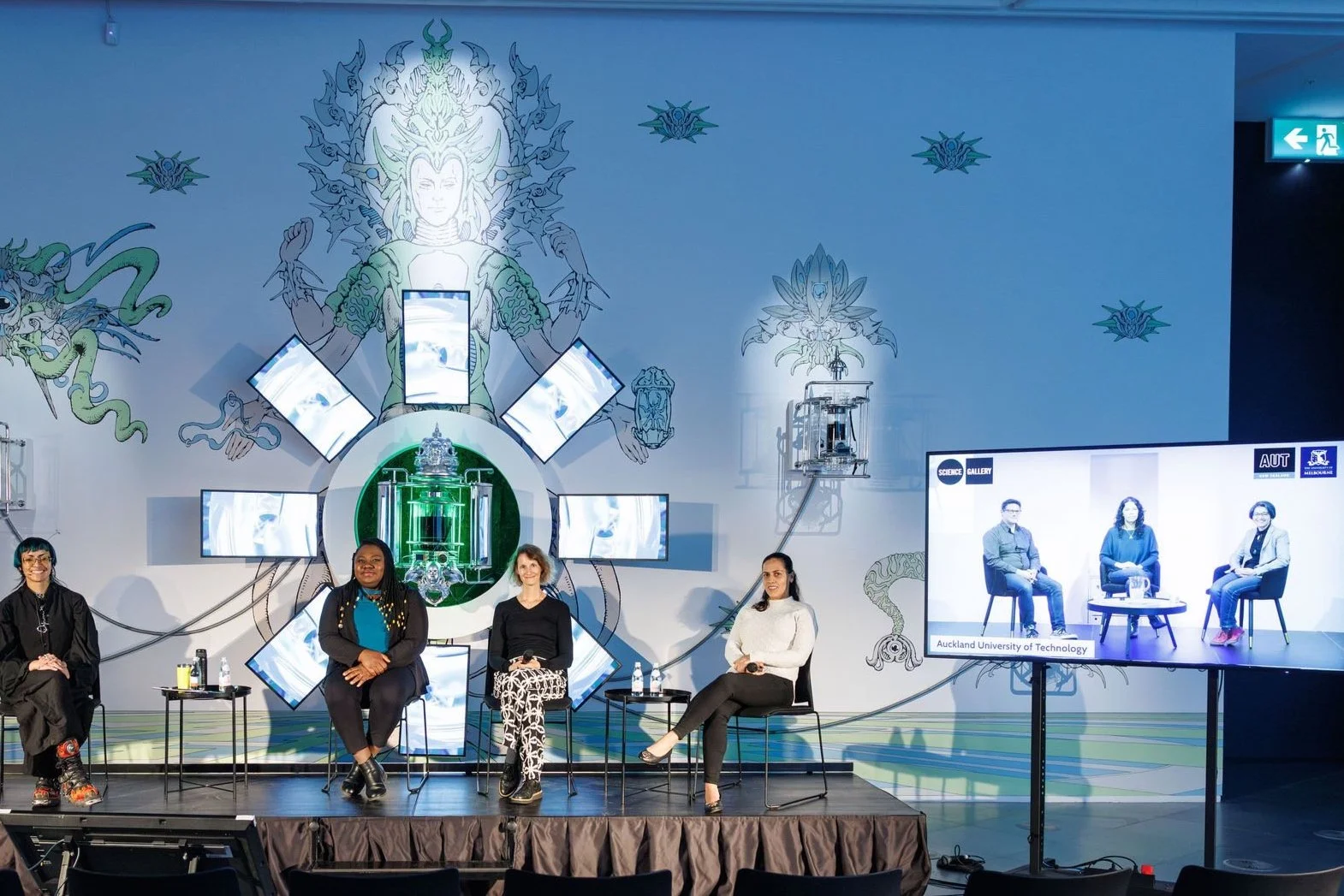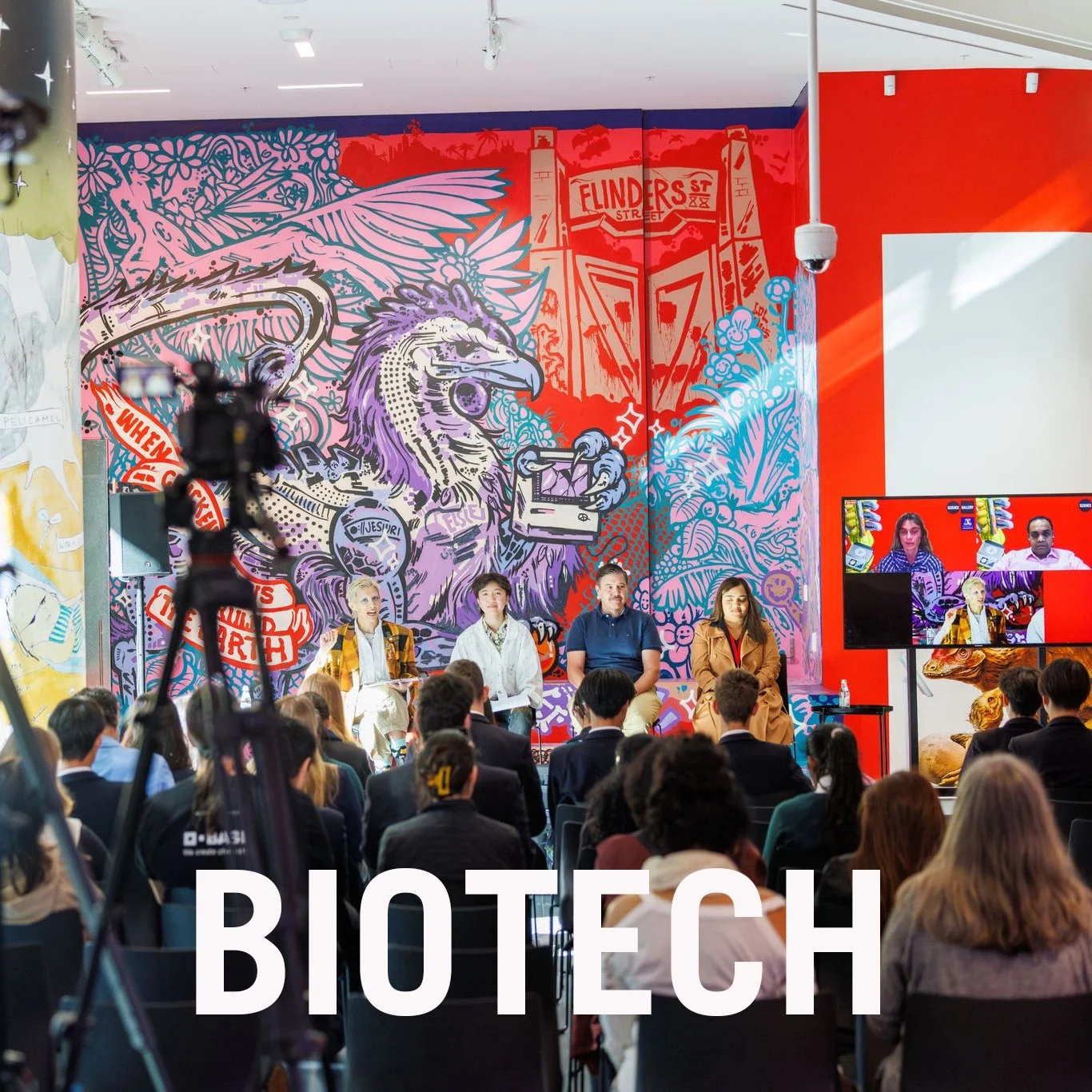In this forum, in response to our upcoming exhibition EMERGENCE(Y), we will explore cutting-edge careers focused on reimagining our futures.
Read MoreOur next Future Careers Forum, in response to our current exhibition DISTRACTION, will explore diverse and ever-changing careers in Human-Computer Interactions.
Read MoreIn this edition of the Future Careers Forum Online, Disrupting Disinformation, we explore careers in communication, technology, research and storytelling, and their intersection with “truth”.
Read MoreThis Future Careers Forum, AI Revolution explores artificial intelligence and its use in industry. What will future industries look like as we explore the AI Revolution?
Read MoreIn this edition of our STEAM Careers Online Forums, we focus on transdisciplinary careers relating to biotech, bioethics and more
Read MoreIn this edition of our STEAM Careers Online Forums, we discuss the growing space industry with panel representation from the Plants for Space Australian Research Council Centre.
Read MoreIn this STEAM Careers Online Forum, hear from a range of experts on careers relating to emerging technologies - think artificial intelligence, robotics, big data and coding.
Read MoreIn this recording, students will hear not only about career journeys and industry connections, but how these professionals use a range of transferable skills in the ways they work to make a difference in the world.
Read MoreOnline forum focusing on transdisciplinary careers relating to mental health.
Read More








